Date: September 26th, 2011
I forced myself to wake up at 11am today. I obviously didn’t sleep too well after how frustratingly last night ended, but I had no choice but to get ready.
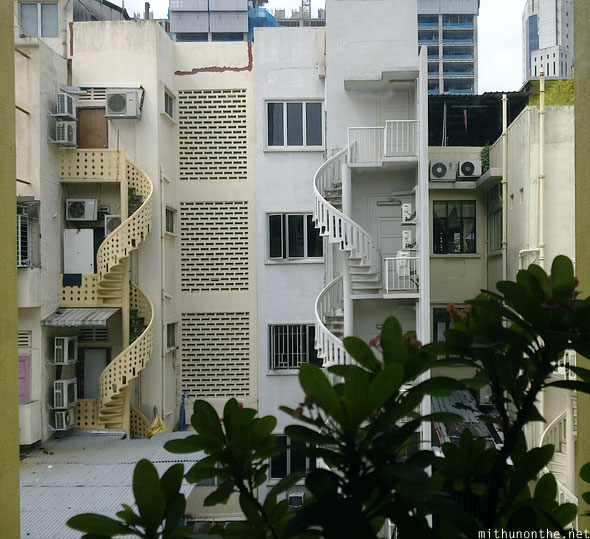
I had something eat, freshened up, packed and kept my bags in the hostel storage room. I got my deposit back and stepped out to take the MRT to Queenstown.
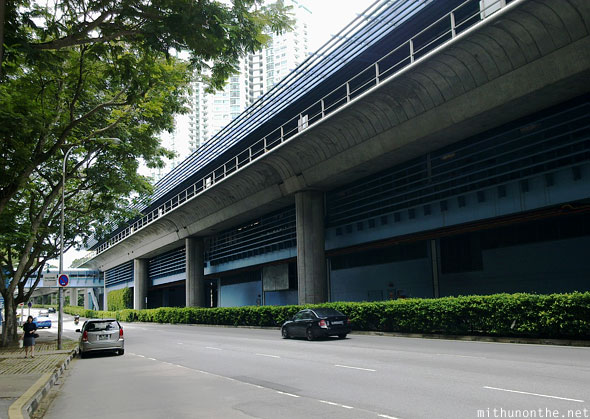
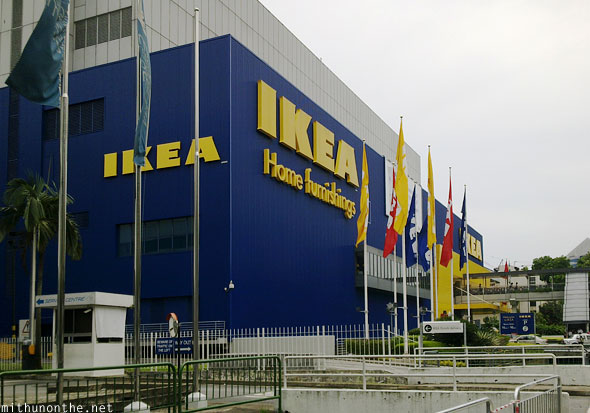
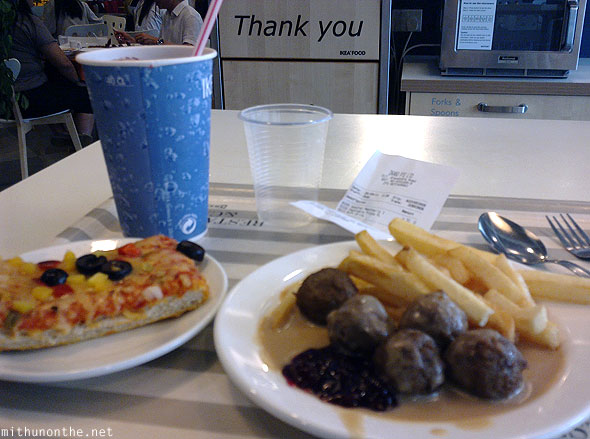


The bus rode through what looked like a very residential locality of Singapore. Passing by the many HDB flats, I began to think about what life in Singapore must be like. Most of Singapore’s residents live in subsidized housing, apartment buildings developed by the Housing Development Board – the Singapore government’s public housing authority. I then wondered: “Wow, the government must be really nice here”.
Curiosity got the better of me, and so I began reading more about Singapore’s government, and about the nation itself – a nation so famous for being clean, strict and marketed to us as a ‘perfect’ place. But what I found were certain facts that really undermine that status.
Actually the first ‘discovery’ that kicked things off for me was about Singapore’s media industry. Since I was going to be in the country for over a week, my friend suggested that I at least put up my resume on a few Singapore job sites, so that in case any interview got lined up, I could attend it while I got ready for the F1 weekend. I only updated my resume two weeks prior departure, but I assumed given my experience working at an internet content major, the job offers would come.
I got nothing. Mostly because a lot of the jobs stated one had to be a Singaporean or a Singapore PR (Permanent Resident), which I obviously understand. A lot of the matching job profiles I got were for Mediacorp, Singapore’s largest media company. I was aware of Mediacorp because of Channel News Asia, which airs in India too. I initially thought Mediacorp was owned by Rupert Murdoch, given how much his empire controls most of Asia’s satellite TV business. But it turns out, Mediacorp is owned by the Singapore government, through it’s investment arm Temasek Holdings. The same Temasek who own sizeable chunks of Airtel, Mahindra, Jet Airways and ICICI Bank — some of India’s biggest companies. Mediacorp maybe registered as a ‘Private Limited’ company, but that doesn’t mean it’s free to run or say as it wishes. When you are funded by the government, strings are going to come attached.
Upon further learning, all media in Singapore is regulated by the Ministry of Information, Communications and the Arts (or MICA as it’s commonly known). Meaning, they control which publications are allowed in the country, including international magazines. Spending some time browsing their website, I came across their mission and ‘values’:

“To create a favourable view of Singapore among Singapore residents and the international audience” is a very polite way of saying “You’ll rarely hear anything bad about Singapore because we won’t let you say anything bad about Singapore!”. Even the largest print company, Singapore Press Holdings (publisher of the most widely read newspaper, The Straits Times) is closely linked to the government, with many of its executives being former bureaucrats.
It makes sense now, why many of us in India perceive Singapore in such positive light. All I ever knew about Singapore prior to my first visit in 2010 was how strict the laws were, the sights I saw from all the Indian films that were filmed in Singapore and travel shows. If there’s one thing Singapore is really good at, it’s marketing itself. Controlling Singapore’s image works, it’s worked for years. India still remains a top 5 market for Singapore tourism.
Another bit of research I ended up doing on Singapore was during the whole ‘Lokpal Bill‘ debate that shook up India last year. For those non-Indians reading this, a massive anti-corruption movement gained pace with a group pushing for a strong anti-corruption bill, which they say would put an end to corruption in India. (I never supported the bill, because unlike the majority of its supporters, I actually read the bill). A lot of noise was made, millions across India supported the movement and obviously, social media was used to create awareness. One of the stupid ‘share this’ messages that I kept seeing on my Facebook wall went something like this:

First of all, I can’t stand those “Re-post post this if you…” messages which upon first read itself, anyone with some common sense can tell the facts could possibly be incorrect! When I kept seeing this on my Facebook wall, I got irritated with the language used and went straight to Google to find real facts so I could dispel this bullshit. What I found was no such bill was passed in 1982. The only bill that was passed in Singapore that year was an ‘International Enterprise Singapore Board Act’. Hardly anything to do with curbing corruption!
Even before I learnt about the tax rates in Singapore, I took a hunch that there surely can’t be many Asian nations besides the oil-rich GCC countries that are truly tax-free. Singapore isn’t rich in resources to be a “no tax” nation. If at all, Singapore is one of those havens for offshore banking, a tag that isn’t often associated with a perfectly corruption-free country.
Another fact I came across when researching on corruption is that Singapore still does not have a law that protects whistleblowers. Singapore does have a Corrupt Practices Investigation Bureau though, incorporated in 1952, whose role is to investigate and push for prosecution of the corrupt. Does that make Singapore perfectly void of corruption today? No. I’m sure there is some corruption in Singapore. No society exposed to material wealth and globalization can be ‘corruption free’. Greed is a human condition. Where have you seen ‘have nots’ so lazy they don’t even aspire to be one among the ‘haves’?
There will be those who say Singapore has little corruption because their ministers are well paid*. To them I say, read multiple news sources, there is corruption, you just don’t hear about it too often. Also, the solution to curb corruption cannot always be solved by paying people more. India’s ministers receive lower salaries (comparatively), but like many government officials the world over, everything else is also paid for too — housing, bills, transport, flights, assistants, etc. Can you guarantee paying a corrupt official 50% more will make him give back the millions he siphoned out of government funds for years and has stashed away in foreign banks?
I know it’s not fair to compare a nation of 5 million to a nation of over a billion with a much older history, but the truth of the matter is, Singapore is one of the least corrupt nations in the world. Meaning, Singapore isn’t as corrupt as other nations, especially its neighbours in Asia. Singapore’s government didn’t simply build a flashy central business district to appeal to businesses, while ignoring the rest of the country. Singapore’s corrupt surely can’t be as bad as the corrupt leaders of Pakistan, India, Philippines, or Indonesia.
Which brings me to another fact about Singapore, which I only learnt about recently — the country has been under the rule of a single party for the last 53 years! That party being the People’s Action Party (PAP), and it’s co-founder Lee Kuan Yew was the first prime minister of Singapore… for 30 years. Singapore’s current prime minister Lee Hsien Loong is Lee Kuan Yew’s eldest son. (Doesn’t sound too much like a democracy does it?)

It’s not like there aren’t opposition parties in Singapore, there are a few. But I haven’t researched too much on why the opposition haven’t been able to break the chain of command the PAP has had over Singapore since independence. Could it really be that the majority of Singaporeans still have faith in the PAP? After all, Singapore does hold general elections every 5 years. Could it be the ‘newer’ citizens of Singapore vote in PAP’s favour? Who knows, maybe the PAP’s victorious reign can attributed to the old adage: “If it ain’t broke, don’t try to fix it” — or just plain ignorance among the populace.
Speaking of Singapore’s new arrivals, I can’t not bring up the Chinese. As in, Chinese from the People’s Republic of China. When I first visited Singapore in 2010, it was during F1 weekend, when thousands of people from all over the world fly in, and given how little time we had on our first trip to Singapore, I never really had the chance to make that observation. This time though, I was here for a week, which was good enough to notice these things.
Now, most of my readers (who aren’t Singaporean) must be wondering: “Wait, aren’t most Singaporeans of Chinese descent anyway?” True, but if you ask a Singaporean of Chinese descent if he or she would like to be called ‘Chinese’ over ‘Singaporean,’ chances are they’ll take offense to being called the former. There are over 1.6 billion mainland Chinese, only a few million Singaporean Chinese. Consider it a status issue.
The ‘PRC’s (as they are commonly referred to in Singapore) have now started to come into the country thanks to global exposure and the fact they are now seeking opportunities outside the mainland. The PRCs obviously speak Chinese**, which gives them an edge in Singapore over every other race of people seeking employment in the country. But going by what I have read and what my friends experienced in Dubai, I’m guessing some Chinese are also willing to work for less too. What my friends experienced in Dubai was their companies losing work to Chinese firms because the Chinese were willing to do it cheaper.
Now, some people willing to work for less is nothing new in today’s globalized economy. American corporations began outsourcing to India because wages in India were lower than that of their American counterparts. In the 1990s, it wasn’t uncommon to see Japanese electronic goods that were assembled in Malaysia or Singapore, before they eventually moved every manufacturing to China (again, due to lower costs). But moving to an expensive country and then lowering the average working standards there, when the other standards (of living mostly) are going up, isn’t going to help the masses. I’m not making a blatant accusation against the Chinese (and only them) for lowering standards, but to those who lose out to the Chinese, that’s how they see it. Reading Singaporeans complain, there is some dissent towards these PRCs these days.
I don’t mind working in Singapore. I could easily fit into Singaporean society given my interests, but I’m not desperate. I would never move to Singapore, the third most expensive city in Asia (and in the top 10 worldwide), unless I was paid well enough to justify the move. In quite a few forums while researching for this post, I came across many who were willing to jump at any chance to work in Singapore. Experienced people from skilled fields, willing to work for salaries ranging from SG$2000-3000 (which may seem okay for certain professions, or for locals who don’t have to pay rent) but I wondered if they even did any prior research before realizing what awaits them in this pricey nation.
As is the case pretty much everywhere else, the biggest expense for everybody is the cost of housing. Real estate on this tiny island is very, very expensive! Land is obviously scarce.
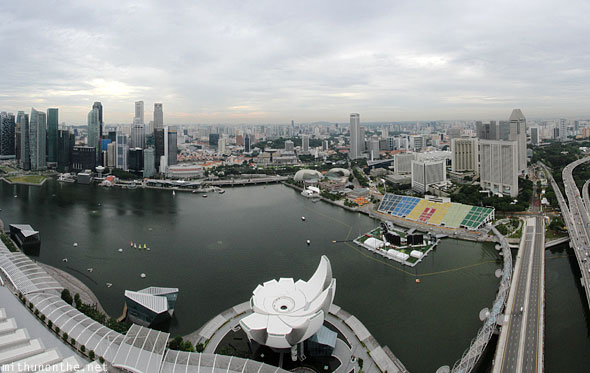
Though the Singapore government has done a good job of providing housing to its citizens with HDB flats, opening up the real estate market to international buyers doesn’t help with keeping real estate prices stable, and affordable. Most apartment offerings from private builders in Singapore cost upwards of a million dollars. Ironically, it’s the Chinese who are leading the international buyer list, followed by the Malaysians, Indonesians and Indians. General impression may make those nations look good in terms of wealth, but as someone who knows the corrupt don’t always keep their illegally acquired wealth in cold hard cash, one can easily make the presumption Singapore’s private real estate market has its fair share of such buyers. Like I mentioned earlier, Singapore has joined the ranks of Dubai and Switzerland as safe havens for such ‘investments’.
Browsing through the newspapers in the one week I spent in Singapore, I could gauge what the average price of a decent sized apartment was. In simple terms: out of reach for the majority. Visit any property website, click the drop-down menu for prices, and that will give you an idea. Though there are some affordable flats (by Singapore standards), most new projects are quite expensive.
The world over, real estate prices have risen and fallen, at the same pace, mostly due to cartel-like pricing and speculation (the hype around “buy now or lose out” plays its part too). It’s only recently the Singapore government introduced measures to lower real estate prices. The HDB too have announced new projects to provide ‘affordable’ options to the growing population (although, there is an eligibility criteria for purchasing and even renting HDB flats). Though the HDB flats are labelled ‘subsidized’ housing, I doubt the HDB is losing money on these projects. They just aren’t as luxurious as the privately developed apartments are – or command the huge profits per sale.
After checking out some of these new HDB projects, it irritates me even more knowing just how over-priced (and over-hyped) India’s real estate market is. Take this project for example:
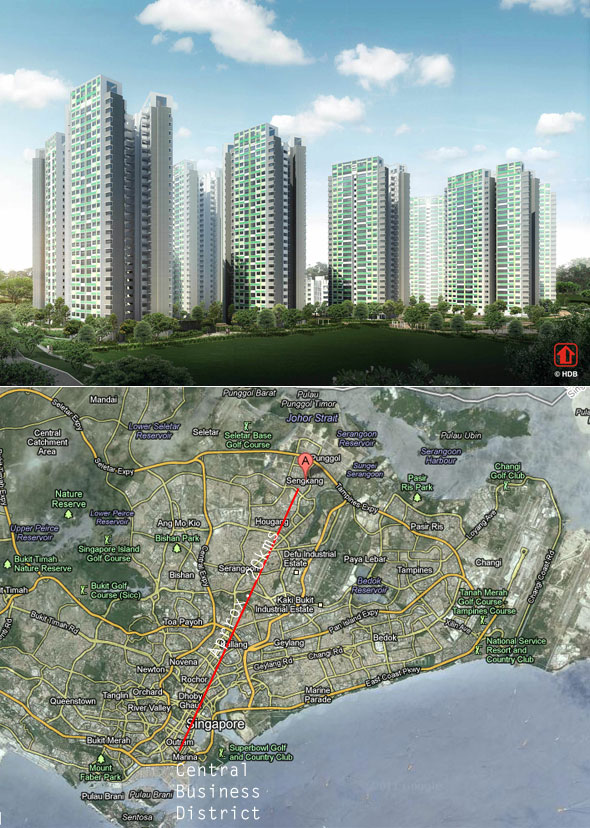
A 1216 sqft flat in the above apartment complex costs around SG$376,000 (Rs. 1.4crore^*/$300k/€226k). Most city-dwelling Indians know that’s how much one would have to shell out to live equally distant to the CBD in cities like Mumbai and Gurgaon. But those very same Indians also know Mumbai and Gurgaon don’t offer the quality of life anywhere near to what Singapore offers! I don’t have Rs. 1.4crore, but if I did, I would never spend it on flat in India (buying land is another thing). India is a country that now has every luxury imaginable, but lacks the basics. I’m sure the lower income citizens struggle a bit in Singapore, but at least they get their food and shelter covered.
Reading about HDB’s early years also brought up something I thought was ‘nice’. The government introduced a quota system through the Ethnic Integration Policy to avoid groupism among certain ethnicities. In a bid to avoid racial segregation, each block of HDB flats are sold to ethnicities comparable to the country’s average. On paper, it sounds like a great move. But another observation I made on this trip was, despite Singapore’s claim of racial integration as one of its strongest aspects, I still didn’t see many inter-racial couples. Like Singapore Indians with Singapore Chinese, or Singapore Malays – the three main ethnicities that make up most ‘Singaporeans’. I saw them as friends, sure, and even as work colleagues – but not a whole lot beyond that. I guess the Asian sentiment of marrying within your own community is still prevalent even in Singapore.
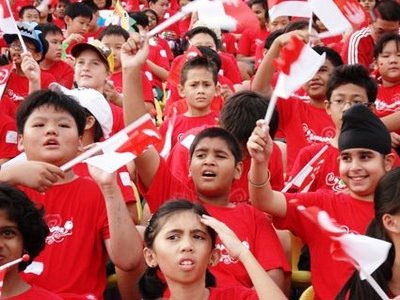
All said and done, I’ll still prefer Singapore over cities like Dubai. As a Gulf-raised boy, it felt great when I went back to the Middle East after a gap of 7 years, that too Dubai and Abu Dhabi. I sat in awe the first time I drove through Sheikh Zayed Road, staring at the stunning skyscrapers. Dubai Marina, the impressive man-made marina that’s much bigger than Singapore’s Marina Bay. It was all very impressive to look at. But all it took was a few days to sulk in the reality of Dubai. The tallest building in the world, like the rest of the skyscrapers they built, were all empty. So were the people. There was such a prevalent racial hierarchy when it came to many workplaces. Arabs at the top (even if they’re not qualified to be there), followed by the whites, then the Indians, then Filipinos, Pakistanis/Sri Lankans, and now the Chinese. Some of my friends, those who weren’t working for MNCs (who generally have fairer policies with regards to all this), just accepted it and took the money. I just couldn’t do that.

I like to think of Dubai’s current state as karma. For all the poorly treated, under-paid labourers working in harsh conditions Dubai took in by the thousands, and then got rid off when the slightest of discontent arose. Dubai controls the flow of information too, and it’s illegal to protest. Formation of worker unions are not allowed and worker abuse is commonplace. The same accusations have been made against Singapore as well, like the fact you can’t protest without prior permission, but Singapore is still better off compared to Dubai. For one, Singaporeans are far more well educated. Unlike Dubai’s population, where the Emiratis (the nationals) make up for less than 20% of the population, Singapore still has a sizeable majority who can be called ‘locals’. Though I’m sure Singaporeans reading this will joke/argue that may not be the case in a few years time.
Even though my first visit to this island state was only for 3 days, I still knew I liked Singapore over Dubai. Singapore has more culture than all of UAE likes to claim it has. And a food culture. I’m a fan of both!
Of course, all this is just my point of view, based on my observations. To most Singaporeans, whatever I wrote above would be shrugged off as “nothing new, we know all this la^”. To even get all the facts and find out what the locals are talking about, I had to speak to a few of my readers, hang around Singapore’s forums and read comments on articles (whichever website allowed comments) to get a grasp of what’s really happening there. There was a lot of disdain, racism, complaints from locals about ‘foreign talents,’ foreigners accusing Singapore of being a ‘third world nation pretending to be first world’ – that mostly by Westerners, all the while enjoying the ‘expat life’ (hiring a maid, cheating on their spouses, etc.)
I still felt obligated to write this because there are many who view Singapore as ‘perfect’ nation, Indians included. Because of how it’s marketed here, from all the packaged tours Indians take that only show the touristy side, the view they get is: “Wow, surely everything is better off here”. Compared to most Asian nations, it honestly is. But no society is perfect, that too a globalized, multi-racial, materialistic one.
Some of you who have a problem with interpretation will say what I wrote above amounts to slander. It’s not, but knowing the internet, I’m ready for your comments.
Singapore is a small nation, but it’s still a significant one, especially when it comes to business. A lot of trade passes through Singapore’s port, which is among the busiest in the world. Singapore, much like Qatar these days, also aspires to be politically significant, with the hosting of many high profile meetings and conferences. Its location makes it a great spot for converging, but political significance is never going to be one of Singapore’s strongest aspects. When terrorism strikes somewhere, it’s common to hear from world leaders either condemning it or otherwise. Singapore’s prime minister may give his opinion too, but let’s be honest, that news isn’t going to travel very far.
Singapore likes to make a good impression, and it often succeeds, but the problem with setting the bar high is when you disappoint, it’s made out to look worse than it is. Like when I reached Changi Airport.
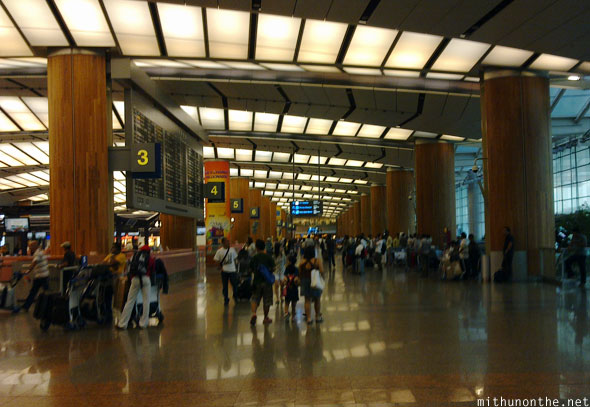
I wanted to get my IKEA purchases shrink-wrapped, but I couldn’t find the machine anywhere. When I asked some of the airport staff, I had to stop saying “shrink wrap” and instead try “plastic wrapping/cover” and only then did one of the staff understand and tell me I had to go to Terminal 1 for that!
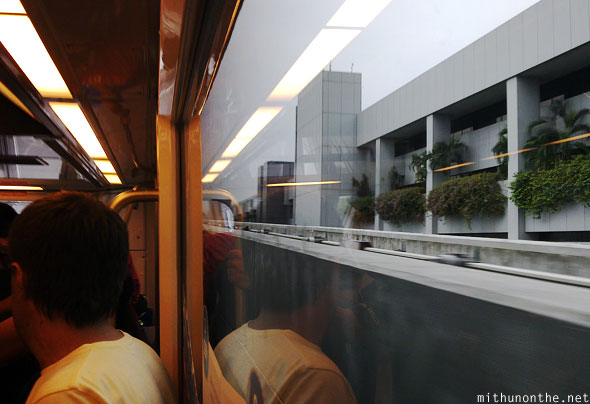
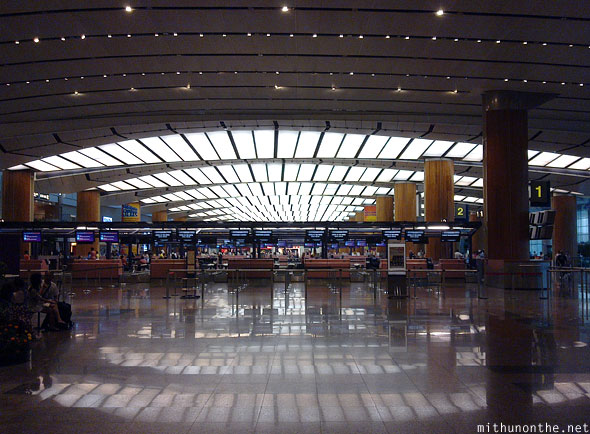
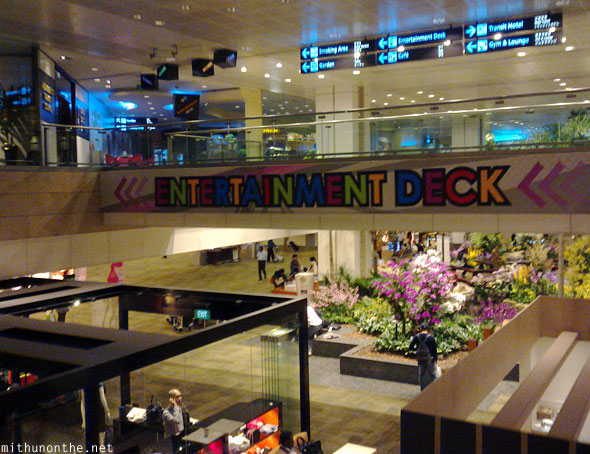
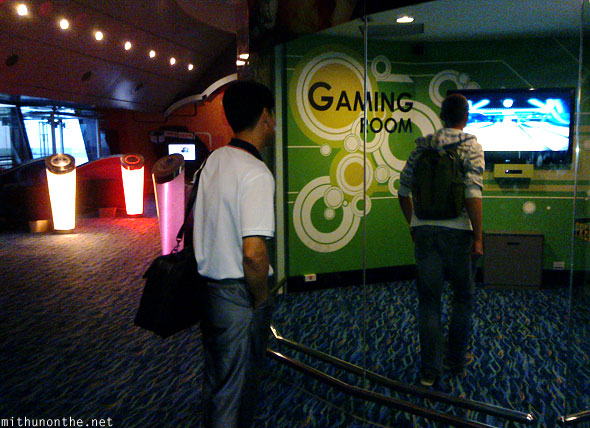
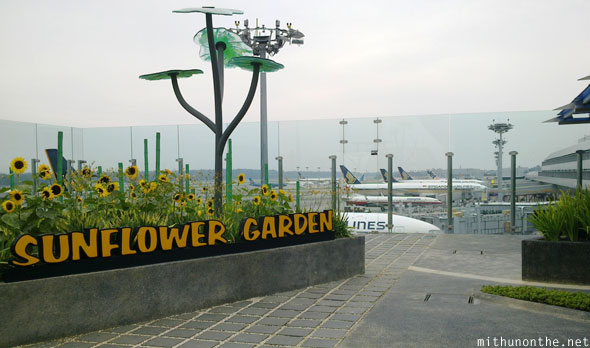
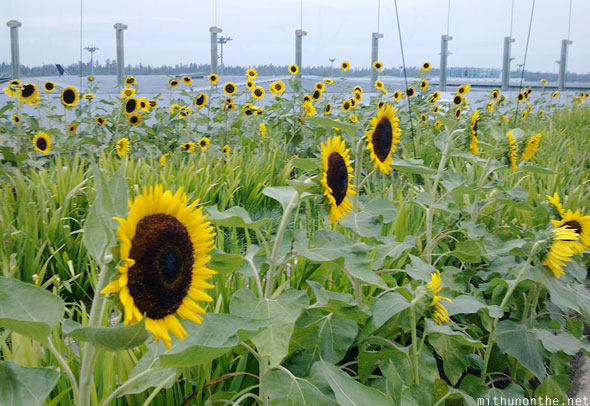
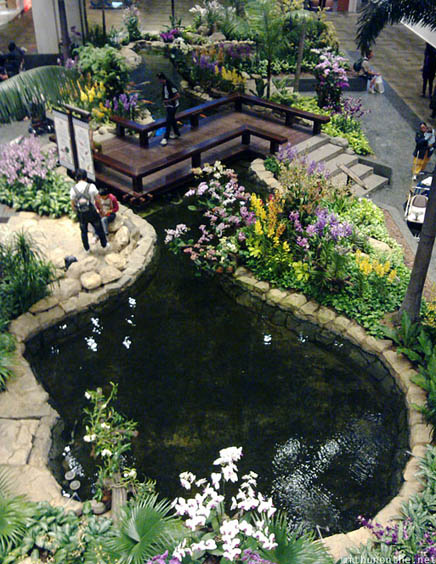
As I waited to board my flight, I wondered when to visit Singapore next. I was hell bent on flying again when news broke SNSD would be holding concerts in Singapore in February, but then that got pulled forward to early December. Couldn’t afford to do it then. Oh well, here’s hoping for an SMTown concert in Singapore.
My 2 year Singapore tourist visa expires in August this year, and I’m sure I’ll end up using Singapore as a connecting destination for my other Asian journeys, if not visiting Singapore a third time. This time there was a sense of boredom already. There was little else for me to explore. As it is Singapore doesn’t have much to offer. I only have Sentosa & Universal Studios left to do, as it’s something I had to skip this time due to my hand injury. Plus, I want to see more of inner Singapore, and the middle class way of life here.
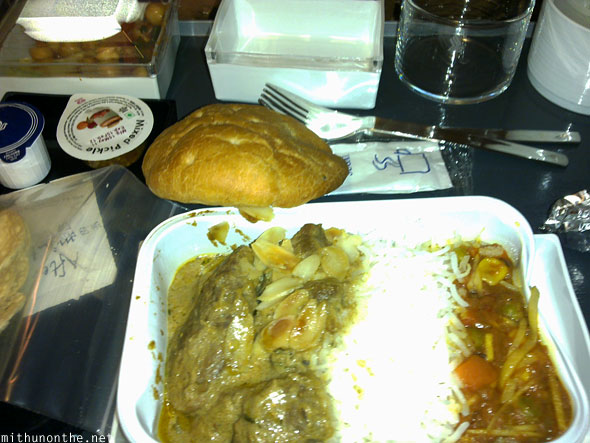
I enjoyed my last few Singapore Slings and… erm… yeah, that’s it. Actually no, I remember now. I was reading the newspapers and particularly about a lot of collective sales happening for the really old HDB apartment complexes. Deals worth hundreds of millions of dollars were being struck buying prime land by the big names in Singapore’s private real estate industry. Older HDB flat owners would get their share of the sale money, which for some deals would net them over a million dollars. It may sound like they struck gold, but with the cost of buying a new apartment today, I guess that newly minted millionaire status won’t last long. Unless they already owned a second home.
Yeah that’s it. I went back to drinking.
Previous posts in the series:
Singapore 2011: Day 7 – Little India, F1 Sunday race, Linkin Park concert and Avalon Club
Singapore 2011: Day 6 – F1 Saturday (Rick Astley, Shakira and Shaggy concerts)
Singapore 2011: Day 5 – Chinatown, F1 Friday (Charice, Seungri and GD&TOP concerts)
Singapore 2011: Day 4 – Marina Bay Sands Casino and views from the SkyPark observation deck
Singapore 2011: Day 3 – Bukit Timah and Singapore Botanic Gardens
Singapore 2011: Day 2 – Jurong Bird Park and… *ouch!*
Singapore 2011: Day 1 – Landing a second time; walking around CBD
*Singapore’s PM commands the highest salary for a Prime Minister in the world – SG$2.2 million per annum (US$1.7 million), after cutting it down recently from just over SG$3 million. US president Barack Obama’s salary is around $400,000. Again, I doubt both heads of state pay rent.
**I know there are numerous dialects in the Chinese language like Mandarin, Cantonese and Hokkien, but for the sake of simplicity, I referred to the language as just Chinese
^* 1 crore = 100, 000, 000 or 1,00,00,000 in the Indian numeric system
^ “la'” is kind of like an end-of-sentence slang commonly used among Singapore’s youth. Just like “da” in South India, “ka” in Thailand, but unlike “yaar” (which actually means ‘friend’) in North India, I have no clue what ‘la,’ ‘da,’ and ‘ka’ mean and how they became a trend!


Aimee
15/02/2012I guess you haven’t explored all of Changi airport (terminals 1, 2 and 3). T3 is a destination itself. I don’t know what your expectations are, but for sure, Changi wouldn’t be named the best airport in the world without any basis. I have more comments and thoughts about what you wrote in this entry but will discuss it to you in private.
Mithun Divakaran Reply:
February 15th, 2012 at 8:52 PM
Yeah, even my friend who flew Sri Lankan Airlines said T3 is what needs to be seen. Guess I’ll fly Sri Lankan next time as they land there.
Sure, let’s talk
Agagooga
16/02/2012Re: inter-racial couples – did you see the white male-local female ones?
It’s not too hard to get PR here. You can try. The election was last
year so it should be easier now, even if you’re not Chinese (it’s no
secret it’s even easier for ethnic Chinese to get it).
PRCs speak Mandarin, but their English is not very good. Doesn’t
matter for many jobs though
Mithun Divakaran Reply:
February 17th, 2012 at 2:13 PM
It’s okay, I know my chances to get a job after becoming a PR will improve, but I rather get a good job first and then become a PR later if I wish to stay in Singapore longer.
If I get bored with life in Singapore, then I rather not try for a PR status at all.
hithere
18/02/2012Well if u want a insight look at Singapore, I would suggest u come to this FB group. Here we have people from all walks of life coming together and commenting on all kinds of gov policies. A lot of the locals have taken to not voting for the PAP aka incumbent in this election, unfortunately PAP has the GRC system which forbids 40 percent of the opposition votes to be transformed into actual seats for the opps. A lot of the singaporeans demand political transform in singapore and we want more accountability from the gov. Lee kuan yew will not be around any longer and his son is just a wimp, so we wait.
do visit us here.
https://www.facebook.com/theonlinecitizen
Mithun Divakaran Reply:
February 18th, 2012 at 5:20 PM
I came across TOC when I began researching for this article. I don’t know if you guys have any association with the main opposition parties, but I don’t mind hearing another perspective of the news. ‘Liked’ your page… weird, I don’t know why I’m playing a part for a country I’m not even living in!
Could I get share for this article on your FB page? If not I’ll share it myself. Thanks for your comment anyway.
hithere Reply:
February 21st, 2012 at 3:56 PM
Send your blog link to theonlinecitizen@gmail.com and the editors will decide from there.
random singaporean Reply:
June 5th, 2014 at 1:54 PM
just so you know, that site and most of its readers take an extremely polarised stance against the PAP government. it’d be wise to exercise your own discretion and read more widely for a more balanced view of Singapore
Mithun Divakaran Reply:
June 5th, 2014 at 3:22 PM
Hey Random Singaporean,
If you were referring to the Online Citizen, yes, I’m aware of its bias. But having been followed a lot more Singapore news sources & forums for nearly 3 years now, I feel I do have an accurate and balanced views about the reality of Singapore and the way of life there.
Heythere
22/02/2012Hi Mithun,
You’re article is a gem. We get a lot of polarized views of Singapore and Singaporean politics today. I like your keen observation and and ability to provide a balanced perspective. Especially the part where Singapore tends to attract extreme criticism because it disappoints after building up a huge hype. Having said that, you are spot on when you suggest that Singapore and its government fairs much better compared to other nations. I hope you visit Singapore more often.
Cheers
PS: TheOnlineCitizen is a site where many supporters of the political opposition gather to share their views. Most raise legitimate concerns, but should also be taken with a pinch of salt. You should similarly read The Straits Times with a pinch of salt, because it is often labelled a pro-establishment newspaper. It’s a shame that in this digital age, media no longer broadcasts, but narrow-casts. People choose to turn to newspapers or online discussions that favor their own views.
Mithun Divakaran Reply:
February 22nd, 2012 at 11:48 PM
Thanks for your comment Kuan(?). Yes I hope to visit Singapore more often too, but I still need a purpose! LOL
As for TOC, it’s obvious from their tone and their articles that a “pinch of salt” is advisable, but I’ve never relied on one media source for any of my news. I learnt from a pretty young age about how, despite any news organizations claims of being “fair and balanced,” no news source is completely bias-free. I listen to multiple view points and form my own judgements. I don’t assume every Singaporean hates PRCs or FTs just based on comments on an article, but nor will I believe everything is fine in Singapore just because MICA says so!
gh
30/03/2012Hi, i was directed to your blog( the post on GP 2011) when I was doing research on Formula 1 in Singapore 2012. This year Jay Chou ( a taiwanese singer) is performing and I am keen to catch the performance but is hesitant as I am not big on crowds. Guess it is super crowded at the Linkin park concert last year? If you don’t mind sharing, was it a pain to get in and out of the venue or assessibility to washrooms and food/drinks was bad?
From the 2 posts I read, you write very well and provide details which makes it feel like we were there . Someone mentioned you give a balanced view, I second that. Have added your blog to my favourites. Keep on writing!
Mithun Divakaran Reply:
March 31st, 2012 at 3:08 AM
Well, I suspect you just can’t compare Jay Chou’s popularity to Linkin Park. Yes, the LP concert was crowded, but I had access to the Fan Zone section, so getting in and out didn’t take much time for me. Read my three day race weekend experiences and you should have a good idea. This year, the fanzone passes are being given to people who book tickets early, so if they run out in a few months time, then they will not be handing out any fan zone bands at the concert venue. The port-a-loos (toilets) are near the main Padang concert stage, so are the food stalls.
Thanks for bookmarking my website, appreciate it
dWi
14/08/2012i’m not surprised when i read this post, seems all of this issues its become daily issues in spore.
moreover when i know that familly sedan in spore is matches with a house in US, wow! inflation is so high *indeed
Mithun Divakaran Reply:
August 14th, 2012 at 1:34 PM
True. The Singaporean dollar cost of a Toyota Corolla gets you a Land Rover in India — and people here complain about high taxes!
dWi Reply:
August 16th, 2012 at 7:06 AM
If can say everything’s are looks like time bomb, it could be explode whenever it wants *imho
Btw it nice to read ur blog, especially ur own review.
greetings from Indonesia
wanni
09/09/2012Hi Mithun, I really enjoyed reading your article. It’s refreshing to see posts like this that have actual research backing them. You have a pleasant and honest attitude towards observing and analysing the social issues here. Cheers
Mithun Divakaran Reply:
September 9th, 2012 at 6:30 PM
“It’s refreshing to see posts like this that have actual research backing them”
He he, thanks for that. Kinda sad the present state of current affairs isn’t it? Although, I’ve learned a lot more about your country since pushing this post live.
Although, I’ve learned a lot more about your country since pushing this post live.
Sameer Desai
30/03/2013Great read. I’ve been to Singapore three times and I actually happened to be there when you published this piece. I guess I’ve never really thought of the things you brought up – corruption, elitism, racism, information control, etc, because I’ve always travelled on work and never seriously considered moving there.
But I did notice that over the years, the number of immigrants has gone up drastically and the locals now seem a lot more reserved and wary than they used to. Maybe it’s just me.
Still love Singapore to bits though and I’m hoping to make another trip this year, with friends this time.
Mithun Divakaran Reply:
March 30th, 2013 at 1:06 AM
It’s still a place I would visit for events and concerts. Plus I still use it as a gateway to other Asian flight destinations. But I’ve become more and more disenchanted with Singapore as place I’d want to live and work going by all the anti-foreign sentiment. Especially reserved towards non-white races.